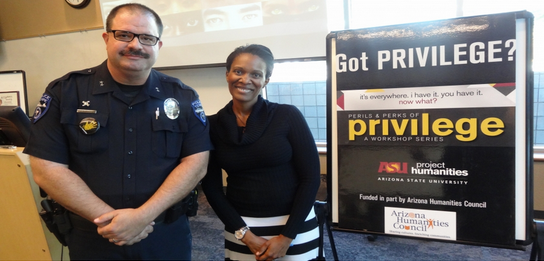Monday, May 9, 2016
On 12:50 PM by Unknown No comments
People following the Academy Awards likely noticed a significant source of controversy surrounding this year’s ceremony, one likely more important than annual debate concerning who should win the actual awards. For the second year in a row, no black individuals were nominated for any of the acting roles, even though there were several black performances that many dubbed deserving. As Variety pointed out, the critically acclaimed Creed was filled with black characters in major roles and was both written and directed by African American Ryan Coogle, but the only nomination was for one of the few white actors, Sylvester Stallone. Similarly, Straight Outta Compton, a film filled with black actors and directed by the black F. Gary Gray, received a nomination only for the screenplay written by two white men. Some people, like actress Charlotte Rampling, argued that this was due to their performances not being as good as white ones, while others, mainly in comment sections of the aforementioned articles, argued that minorities’ overwhelming presence in sports or rap music made this debate hypocritical. Actors like Don Cheadle weighed in too, noting that the issue was due mainly to black actors not getting roles from studios in the first place. That statement also seemed fair; after all, people need representation in casts before they can expect nominations. But regardless of whether or not black actors deserved Oscar nominations, discrimination is a far more complicated topic than commentators on both side of the debate were making it out to be. As such, oversimplifications of the topic tend to ignore equally important topics of consideration across the entire spectrum of media.
To begin with, debates over who deserves an Oscar automatically imply that the Oscars are some kind of merit contest, one that uses objective standards to determine the best films and Hollywood stars from each year. As this article notes, the standards for judging various categories are vague and often non-binding; surprisingly, there isn’t actually a rule that voters need to view all of the films in each category. 2015’s Selma, for instance, was nominated for best picture but unseen by ten percent of voters, while 2014’s 12 Years a Slave was unseen by at least two voters who voted for it anyway due to the film’s “social relevance.” A great deal of tension surrounded the vote from the outset anyway; host Ellen Degeneres noted this in her opening monologue by quipping, “ Possibility No. 1, '12 Years a Slave' wins best picture. Possibility No. 2, you're all racists." It’s thus clear that discrimination affects the awards differently via certain films and during different years, implying some degree of subjectivity. Even ignoring the problems with judging, this isn’t that surprising; Oscar voters are ninety-four percent white, seventy-six percent men, and an average of sixty-three years old, meaning that their decisions emanate from a certain set of worldviews. And while it’s easy to claim discrimination was the reason they didn’t nominate black individuals, the more likely explanation is that they’re out of touch with black culture and lack interest in even seeing films about black experiences. That’s not much of a stretch after all, it's far easier to judge the quality of acting of those who are undergoing experiences that the viewer can personally sympathize with.
In addition to problems with the nature of the actual Oscar event are problems with discrimination across the entire film industry. Don Cheadle had a point concerning the film industry's disinterest with providing minority roles; while many white best actress winners have gone on to star in many A-list roles, black best actress winners haven’t done nearly so well, with only Halle Berry and Whoopi Goldberg gaining some degree of modern A-list recognition across Hollywood. Beyond black roles not being written, there has been a notorious trend of white-washing across the industry. Considering that white children are more likely to receive arts education in public schools than black children (59 percent to 28 percent), this is itself not surprising, but a limited number of roles being available in the first place and lack of funding to support acting education might seriously discourage young minority actors from the start. Again, it is far too simplistic to argue that the Oscars are discriminatory when so many factors play into black representation in media; unfortunately, the discrimination problem only gets worse.
2016 Oscar host Chris Rock received approbation for his humorous approach to the discrimination problems faced by black individuals within the industry, but the Oscar ceremony also took the opportunity to utilize Asian-American stereotypes with little to no self-awareness of the potential hypocrisy of doing so. While the Academy was poking fun at it’s own problems with diversity, it was also creating new ones, something criticized heavily by Asian-American actors within the community. This is something that is often ignored in discussions of discrimination in media; while it is true that black actors are often unrepresented in media, Asian and Latino/a actors face even larger problems. Latinos represent seventeen percent of the US population, but have only about five percent of film roles. While opportunities for Latinas are increasing, Latino roles are starting to disappear. Moreover, most of the roles occupied by actors are either drug or law-enforcement related, pigeonholing actors to work almost exclusively to perpetuate stereotypes. While it is true that Asians are represented in media approximately in line with their percentage of the US population, they are almost always also depicted via some stereotype. Asian women seem to be consistently depicted, across genres, in nearly identical ways, while other Asian stereotypes like emasculation and funny-sounding names seem almost universal. Many Asian actors find they actually have better opportunities if they move to the Asian film market, regardless of whether or not they can actually speak the industry’s language. Discrimination in film is a problem for all racial minority groups, not just black ones, but the problem still doesn’t even end there. Instead, it gets even more thorny.
While easy to characterize the representation of minorities in film as a problem specific to one industry, the problem is essentially the same across all media, including tv series, news broadcasting, and literature. According to the Latino Media Gap Report, Latinos compose a fraction of tv series producers, writers or directors, are depicted as criminals nearly a quarter of the times they appear in tv series, are only 1.8% of news broadcasting producers, and appear on news broadcasts only 1 percent of the time, often during stories on criminal activity. And this isn’t a problem exclusive to film and television either; it extends to literature too. Of 124 authors on the 2012 New York Times bestseller list, only three were people of color, while over 90% of the books they reviewed during 2011 were written by white authors. Even published authors run into additional problems; many books by or about black individuals are lumped into bookstore or library sections labeled “African American Fiction.” Interestingly enough, some of the best representations of minority actors come from “new media” like Youtube channels; of the top 50 single-focus Youtube channels, 18% are run by Latinos, while many of the most popular Youtube celebrities are Asian-American. As many are aware, the most popular Youtube video of all time starred Psy, a Korean singer. Though most media that has been around for more than a few decades is dominated by white presences, newer forms are changing that, due at least partially to the less-restrictive barriers to entry.
Those who have engaged with the debate over recognition of black actors at the Oscars have mostly done so in a vacuum. Their comments ignore that discrimination manifests in a number of different forms, often unplanned, but still consistently affecting minority groups across a vast range of modern media. Those who wish to address unequal representation should keep these things in mind when moving forward, and set benchmarks accordingly; if real progress is to be made in these areas, proponents must understand the numerous ways in which it both manifests and is perpetuated.
Those who have engaged with the debate over recognition of black actors at the Oscars have mostly done so in a vacuum. Their comments ignore that discrimination manifests in a number of different forms, often unplanned, but still consistently affecting minority groups across a vast range of modern media. Those who wish to address unequal representation should keep these things in mind when moving forward, and set benchmarks accordingly; if real progress is to be made in these areas, proponents must understand the numerous ways in which it both manifests and is perpetuated.
Subscribe to:
Comments (Atom)
Search
Popular Posts
-
This weekend everyone on my Facebook feed seemed to be up in arms over Jaden Smith wearing a dress to coachella. I don't really und...
-
Last week I came across an article arguing that the word "thug" is the new "n----r." Could this be true? This ...
-
Earlier this week Disney released its design for their first Latina princess ever. Corks were blown off of campaign bottles, parades fill...
Archive
Powered by Blogger.


